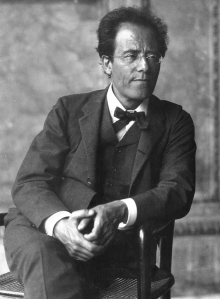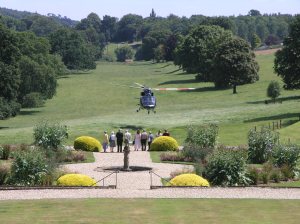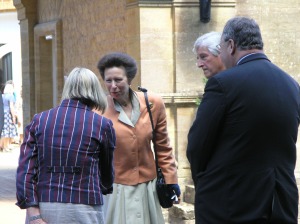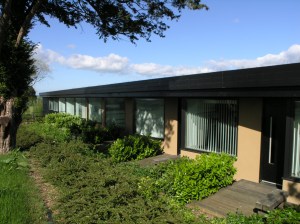Somerset has a rich and delicous monastic past. Indeed, the whole country owes much of its historical foundation to the achievement of the monks and nuns of the middle ages. The dissolution of the monastries between 1536 and 1540 halted their contribution to learning, culture and the economy at a stroke. Such was the ubiquity of the monastic tradition that it is claimed that everyone in the country lived within 25 miles of a monastry, prior, convent or friary. Their presence dominated both urban and rural life for much of the population. Yesterday we heard from Professor James Clark of Bristol University about just how significant the contribution was over centuries. It was a salutory lesson in how careful we have to be in writing and believing our history as after the dissolution there was a nasty PR campaign on the part of the state in order to justify the dismantling of so much. I was a wonderfully informative and stimulating lecture and we hope Professor Clark will come back to us in the future. His final slide was of a ruinous crypt in the Wiltshire. Our next talk is of another old ruin in Wiltshire – Stonehenge, given by Julian Richards.
The clan arrives for their annual fix…
It’s Friday afternoon and we’re at the end of what seems a long week, and like the changing of the guard, our conference residents have left – some back to their families in Europe – whilst our new guests check in at Reception for their weekend of Scottish country dancing and music making. Residenial adult education weekends everywhere often coalesce around ‘communities of interest’ and this weekend is no exception. It is true of embroiderers, archaeologists, historians, egyptologists and musicians – to name just a few. Last weekend we had an enthusiastic band of singers who, without any formal musical training, spent a whole weekend having the time of their lives. The bar did a great trade as thirsty throats needed to be oiled for the demanding sessions. Next weekend is the turn of the lakemakers which will be by contrast, shall we say, a more sedate affair.
All this demonstrates to me the instinct that people have for spending time together. Whether it is with family, colleagues or even with strangers, the reward of shared experience should not be underestimated. In a society under pressure, where families don’t always live in close proximity to their kin, getting together in clubs, groups or around shared interests is enormously important in countering feelings of social isolation and lonliness. That sounds dramatic but I know that for many people the simple coming together is the real benefit. Social policy makers need to wake up to the fact even in this age of austerity.
Technology and the Meaning of Life etc…
I was at a conference this week – very conveniently held at Dillington – which was all about business, innovation and information technology. Specifically, it was themed around the opportunities given by superfast broadband (coming to Somerset in the next couple of years), Facebook, Cloud Computing (whatever that is), Twitter, social networking etc. We heard from IBM’s Dr David Watson about the way in which computing is becoming more ‘intelligent’ and, akin to the knowledge spaghetti in our brains, it will soon be able to untangle the mass of data collected by machines. Very scary I thought. Soon computers will be saying ‘no’ just like the computer in Little Britain. Perhaps the most interesting contribution came from Professor John Bessant of Exeter University Business School. He was able to give an overview of how new technology was changing the world in which we work and was able to describe how networks were becoming critical to business success. Linkages and networks were the future according to John. The old way of doing business was redundant – well almost.
What was remarkable about the day (which was genuinely interesting) was the gaping fault line in the room between the sceptics (me included) and the enthusiasts. Unfortunately, this divide was not really discussed as I suspect it wasn’t anticipated. Anyway, the notion that we should surrender ourselves and our businesses to the fashion of the latest technology is, in my view, clearly unwise. This stuff is mostly untried and it is certainly is not a panacea for all businesses and not even a particularly useful tool for some. Indeed, when you think about the world of Twitter and tweets then any serious person must wonder whether the world has gone mad. Like the Tower of Babel everybody is chattering, nobody is listening and nobody can understand. Awful. I think we are in danger of dumbing down what is important and trivialising a world worthy of serious discourse and thought. Like the rise in celebrity culture which has become all pervasive, we are in danger of sleepwalking into life lived vicariously though technology, its creators and controllers. It seems to me that what we need is a serious critical debate and not generalised promises and threats. One speaker, who shall remain nameless, even endorsed the view that you would not have a business if you didn’t embrace the world of social networking. I could audibly hear a Victor Meldrew mutter when those words were said…after the gasps had died down.
Now, what I have said above, is not to say these emergent technologies and their application do not have a place in the world of business or in other aspects of our lives. They certainly do, but what I want to argue for is a sense of perspective and a new realism born from the ethical standpoint that people matter more than technology. The brave new world of the future needs to be populated with ideas that make us happy not just more technology to clutter our lives and confuse our sense of purpose and humanity.
These issues are important and I need to thank Somerset County Council and the University of Plymouth for organising something so stimulating and scary at the same time!
Machu Picchu – A Cautionary Tale
Machu Picchu – The Lost City of the Incas
Last Sunday archaeologist David Drew gave a lecture about the so-called lost city of Machu Picchu. Of course, the Andean citadel was never truly lost and was well known to the locals even to the extent that some farmed amongst the ruins. As it happened, there was a lot we didn’t know about Andean culture before it was disrupted and destroyed so effectively until well into the 20th century.
The western encounter with Machu Picchu only goes back 100 years when American archaeologist and adventurer, Hiram Bingham persuaded the National Geographic Magazine to sponsor him on a series of expeditions to Peru. An account was published in the magazine and so the myth of lost cities was born. Indeed, Bingham’s account was very evocative whilst at the same time exaggerating his claim in all sorts of ways. Not only was the myth of lost cities founded but also that of the action adventurer. It doesn’t take to much thought to realise why Indiana Jones had such resonance with the public decades later.
Today Machu Picchu is an iconic site in South American tourism and there are real dangers that the advent of mass tourism will destroy the very thing people want to see. Controls are now in place to limit access to the site but the weight of numbers more generally is threatening local culture in the surrounding area. A new airport near Cuzco is about to be built and this is bound to have a massive impact which will not be for the benefit of everyone. In a sense, I hope our talk last Sunday will act as a scholarly substitute to the need to visit. Excellent as it is to learn about world cultures, we need to remind ourselves that we don’t need to consume them in ways which has the result of destroying the very thing we love and admire otherwise things will become truly lost forever.
DILLINGTON OPEN DAY 2011
Preparations are well underway for our Open Day a week on Sunday – 4th September. The weather has been so lousy this week it can only get better by the time the great day arrives. Actually, although we have a wet weather plan in place, it has never been implemented. Let’s hope 2011 doesn’t break the pattern of past years. If you’ve never been to one of our Open Days then let me tell what you’ve been missing. Not only is it a chance to look around and see things like the superb accommodation available, but also you can talk informally to tutors about subjects in the programme and their courses. In addition, there are some unusual attractions and I think this year we have come up trumps with some amazing shepherd’s huts. These are like Gypsy caravans but are designed to be parked up rather than taken around the countryside. The ones on display are made locally and are beautifully constructed of the finest materials. It might give you an idea of that home office or secret reading room down the bottom of the garden! To entertain you there is lots of music, talks and, of course, there will be plenty of food to taste too. Some of our local suppliers will also be on hand to lighten your purse in return for some fabulous meat, fruit, veg and cheese. The day kicks off at 12 noon and runs through to 5.00pm. So, if you want to get a taste of Dillington – in more ways than one – then do come along. It is completely FREE (we all like free) but don’t forget that you might want to buy a cup of tea or even book on a course or buy tickets for a talk or concert. We look forward to welcoming you.
Tears for the Weeping Willow
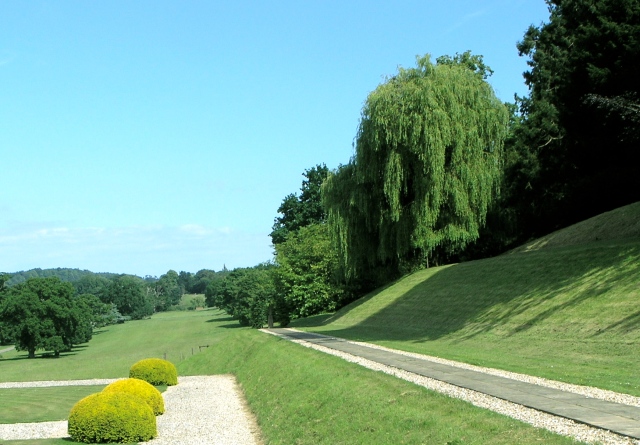 The vista down the park from the croquet lawn is one of the defining views at Dillington. The long view formed by carefully planted trees adds wonderfully to that sense of getting away from the hurly-burly and into something natural and real. Of course, this is all an illusion and the park is, in reality, a carefully contrived construction. There is nothing natural really just a fabricated appearance of nature in its most benign state. Key to the the theatre of the landscape are the trees and so, with a metaphorical tear in my eye, I have to report a great loss. The magnificent weeping willow, at the end of the bank on your right as you look down the garden into the park, suddening gave up its crown which crashed down into the rest of the tree. The moment was 7.30am last Thursday morning and the crack was so loud a resident was convinced somebody had let off a powerful gun. The sheep in the park were completely spooked by the retort and spent a good ten minutes or more running about as if their lives depended on it. The sheep survived the ordeal but sadly the tree didn’t. So much of the tree was damaged that the only kind thing was to take it down completely. Naturally, we counted the rings and ascertained that it was planted some 47 years ago. This makes it a youngster among the trees at Dillington but this wonderful willow was one of the most conspicuous and graceful. It will be missed and remembered.
The vista down the park from the croquet lawn is one of the defining views at Dillington. The long view formed by carefully planted trees adds wonderfully to that sense of getting away from the hurly-burly and into something natural and real. Of course, this is all an illusion and the park is, in reality, a carefully contrived construction. There is nothing natural really just a fabricated appearance of nature in its most benign state. Key to the the theatre of the landscape are the trees and so, with a metaphorical tear in my eye, I have to report a great loss. The magnificent weeping willow, at the end of the bank on your right as you look down the garden into the park, suddening gave up its crown which crashed down into the rest of the tree. The moment was 7.30am last Thursday morning and the crack was so loud a resident was convinced somebody had let off a powerful gun. The sheep in the park were completely spooked by the retort and spent a good ten minutes or more running about as if their lives depended on it. The sheep survived the ordeal but sadly the tree didn’t. So much of the tree was damaged that the only kind thing was to take it down completely. Naturally, we counted the rings and ascertained that it was planted some 47 years ago. This makes it a youngster among the trees at Dillington but this wonderful willow was one of the most conspicuous and graceful. It will be missed and remembered.
Summer School in Full Swing
The Dillington Summer School lasts for two weeks and is a veritable miscellany of lectures, visits and activities. All the accommodation is taken and numbers are supplemented by those attending on a daily basis. The comings and goings of the minibuses – usually loaded with tea and cake (as well as people) in the afternoons – adds to the sense of organised excitement. Days are divided so you do one subject in the mornings and then something else in the afternoons. Evenings are given over to some form of entertainment although even then there is sometimes are choice.
The programme for 2012 is already being formed with the Olympics holding centre stage. Not only will it be possible view many of the key events but there will be a course on the history and culture of the modern Olympic movement. But that’s next year. The second week of this year’s programme is in full swing and everyone seems to be having a great time. Let’s hope the weather remains good. It makes all the difference.
Mahler as you’ve never heard it before…
The annual Classical Guitar Festival week in August is always full of interest, superb instrumental playing and musicianship. Check it out next year.
Dillington’s First Royal Visitor
Monday 25 July 2011 was the occasion when Dillingon welcomed its first ever visit by a member of the Royal Family. The Princess Royal descended from the skies in a helicopter to attend the Somerset Carers’ Conference. She was attended by the Lord Lieutenant, Lady Gass, and a lot of discrete but efficient security. Landing in the park HRH walked up to the House where she was greeted by a host of civic dignataries before retiring for a private lunch. The Princess Royal then walked across to the Mews where she chatted to about 100 people who looked after those with mental health problems. The royal presence should be viewed as an endorsement for the amazing commitment many people make caring for those with what can be described as hidden illnesses or conditions. Their work is often heroic and it is unstinting and relentless. Their day at Dillington was a moment of solidarity and respite and as well as an opportunity to talk about their experience. It was a day which no one will forget.


